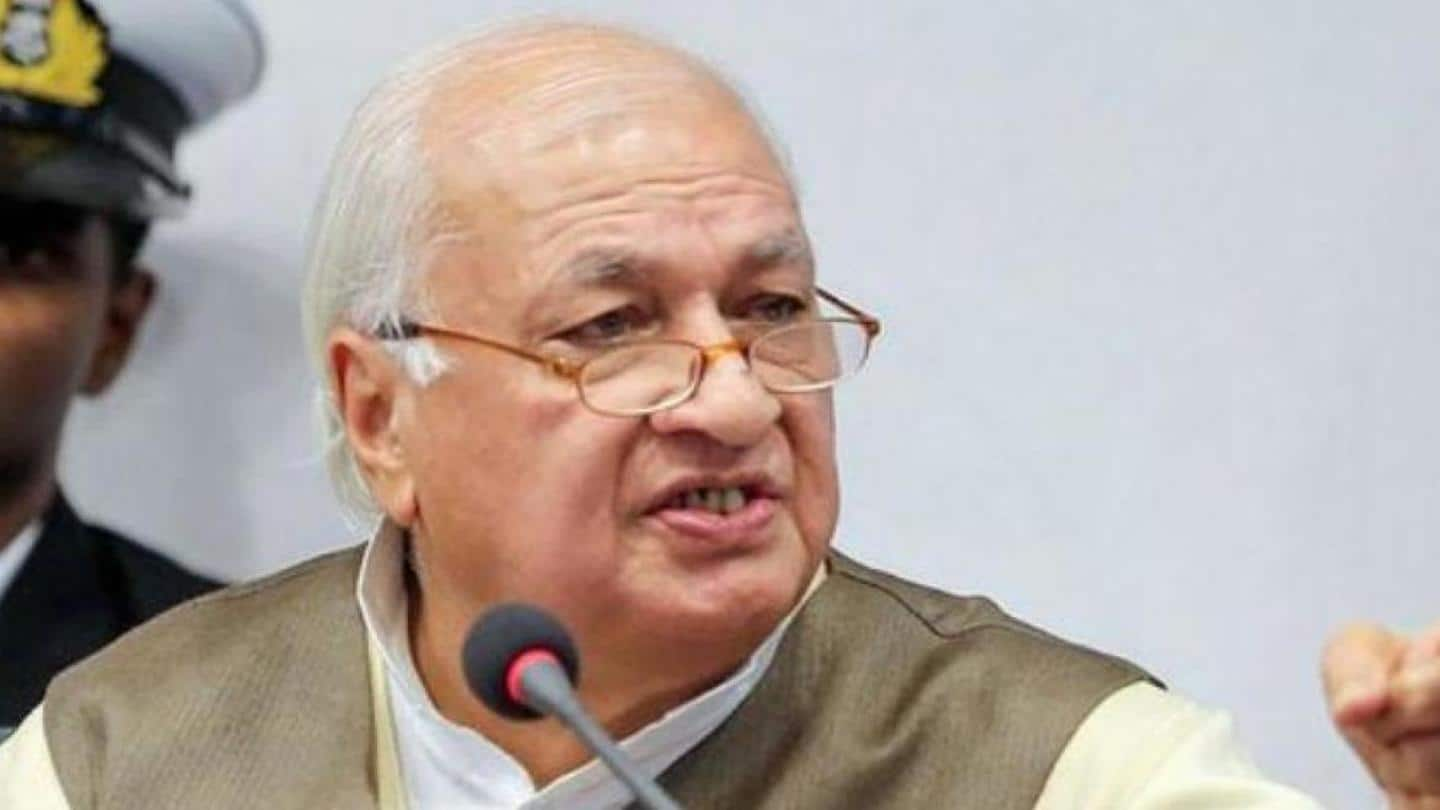
Kerala's new law: Three-year jail for 'offensive' social media posts
What's the story
Kerala Governor Arif Mohammad Khan has signed the controversial Kerala Police Act Amendment ordinance amid widespread criticism.
The Left Democratic Front (LDF) government in the state has said that the new law is aimed at protecting people, particularly women, from social media abuse.
However, critics say the law awards more power to the police, and it could be abused to muzzle the media.
Law
Ordinance introduces new Section 118(A)
Khan's office confirmed on Saturday that he had signed the ordinance, introducing the new Section 118(A) in the Kerala Police Act.
The section pertains to "punishment for making, expressing, publishing, or disseminating any matter which is threatening, abusive, humiliating or defamatory."
Offenses under the law will be punishable with up to three years' imprisonment or a fine up to Rs. 10,000 or both.
Quote
Who is an offender?
"Whoever makes, expresses, publishes or disseminates through any kind of mode of communication, any matter or subject for threatening, abusing, humiliating or defaming a person or class of persons, knowing it to be false and that causes injury to the mind, reputation or property of such person or class of persons or any other person in whom they have interest shall on conviction..."
Information
Section 118(A) is a cognizable, bailable offense
Offenses under Section 118(A) are bailable and cognizable—the police have the authority to make an arrest without a warrant and launch an investigation without a court's permission. The Opposition has underlined that the law could curtail the freedom of the press and impact free speech.
Criticism
Kerala lawyer to move High Court against ordinance
Kerala-based advocate Anoop Kumaran has said that he would move the High Court against the ordinance.
He told The Indian Express, "The government claims that Section 118(A) is meant to protect people, particularly women, from social media abuse. But in reality, the new law would be used by the authorities and government against those who criticize them."
Information
Earlier, Supreme Court had declared Section 118(D) unconstitutional
In 2015, Kumaran had moved the Supreme Court against Section 118(D) of the same Act. The court had eventually struck down Section 118(D), declaring it unconstitutional for violating the fundamental right of freedom of speech and expression.
Experts
'Kerala would do well to not impose such draconian laws'
Journalist Nikhil Pahwa had earlier told The News Minute, "The Kerala government would do well to not impose such draconian considerations on citizens, and learn from the mistakes they made with Section 118(D)."
Technology lawyer and digital rights activist Mishi Choudhary said there are already enough laws under the Indian Penal Code for this, adding that the new law wouldn't stand constitutional scrutiny.